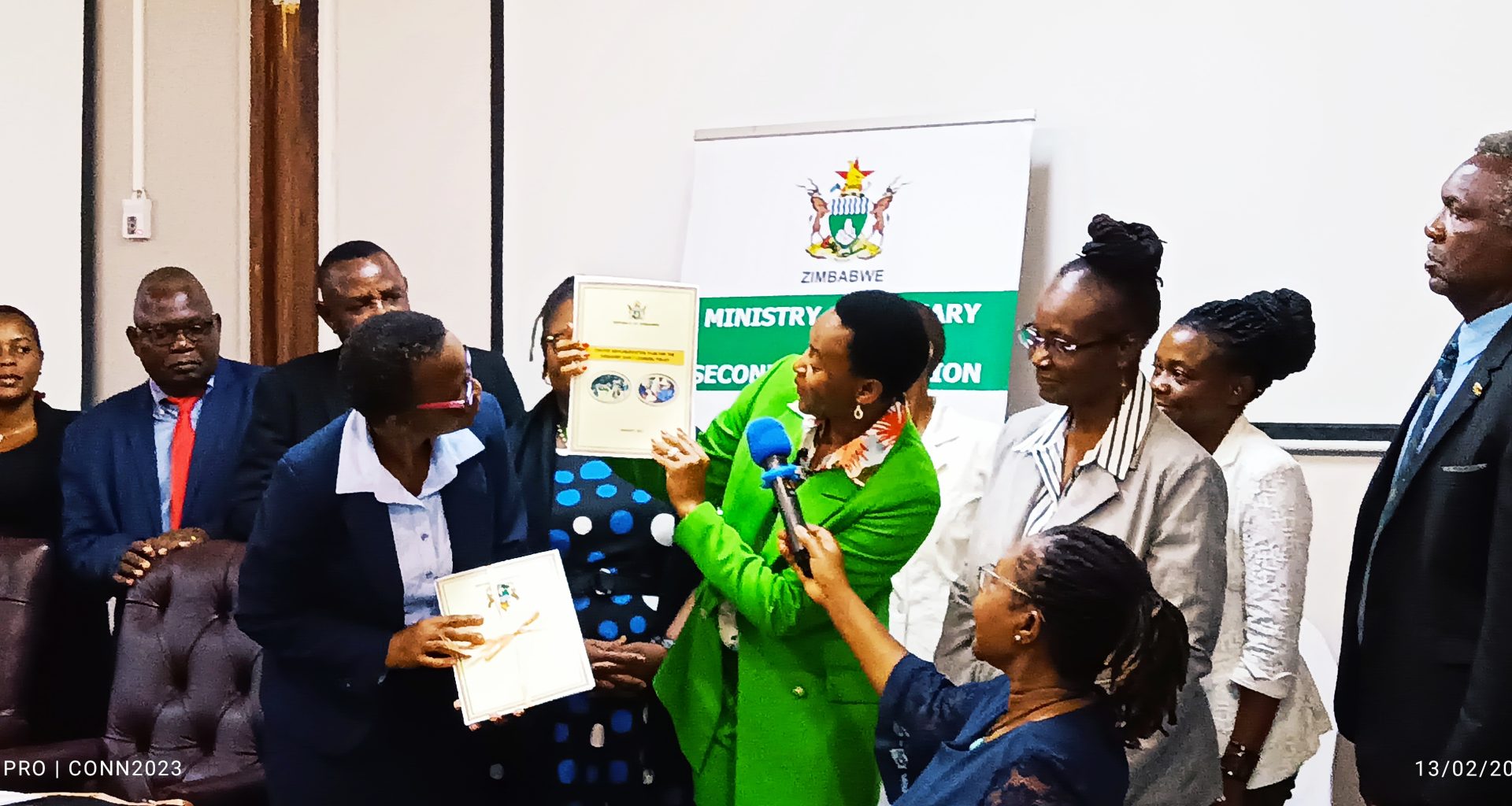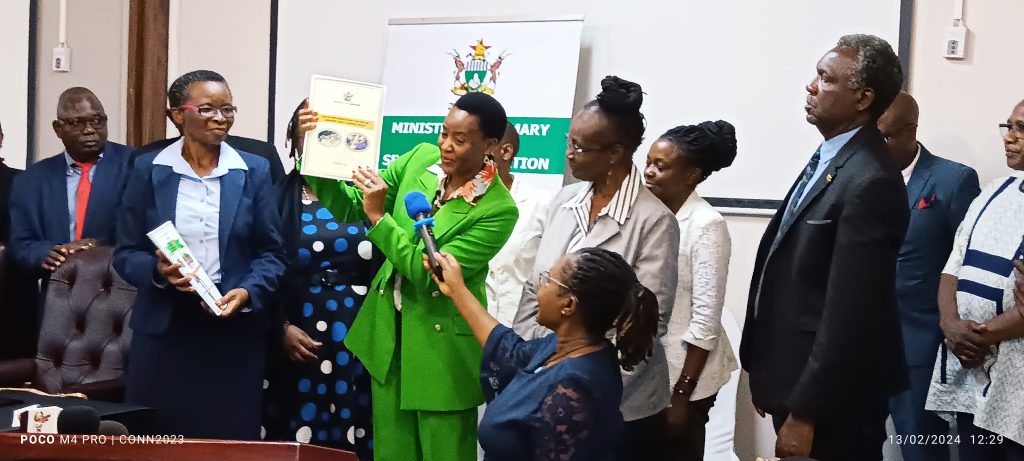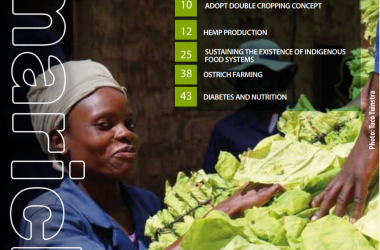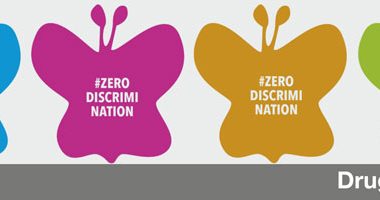ZIMBABWE has launched an education policy which is expected to ensure that all children in Zimbabwe have a firm foundation for literacy, numeracy, social-emotional competencies, Science, Technology, Engineering, Arts and Mathematics (STEAM), if implemented effectively.
The Zimbabwe Early Learning Policy (ZELP) is expected to address the challenges experienced in the implementation of ECD over the years and ensure coherent and quality Infant School Education.
“The Zimbabwe Early Learning Policy is a coordination tool for strengthening the human capital foundation for our country. Human capital development is premised on the acquisition of knowledge, values and attitudes that are acquired through an education system which prioritises early learning as the basis for any other lifelong learning opportunities,” said Deputy Minister of Primary and Secondary Education, Angeline Gata while launching ZELP in Kadoma, Tuesday.
The essence is to cultivate an investigative mind of the young pupil, creative enough to produce and not only to regurgitate knowledge but develop competencies on how to use it.
Background to the Zimbabwe Early Learning Policy
ZELP was developed in response to the recommendations of the 1999 Presidential Commission of Inquiry into Education and Training Report, which proposed the introduction of Early Childhood Education into formal schools.
The Constitution Amendment (No 20), 2013 proclaims the right of every child to a free and compulsory basic education. In addition, Government is also a signatory to the global commitments on education including United Nations Sustainable Development Goals (SDGs), Agenda 2030 and African Union Agenda 2063.
Originally, early learning provision was guided by fragmented policy circulars and statutory instruments. These piecemeal legal and regulatory frameworks did not provide a coherent coordination system of early learning. In view of this, Secretary Circular Number 2 of 2014 then institutionalized Early Childhood Education into the formal school as part of the Infant School Module, making primary education a 9-year course.
In his foreword to the ZELP blueprint, President Emmerson Mnangagwa said Zimbabwe has managed to overcome some of the multiple challenges that the education sector has been experiencing since independence in 1980.
“The 1999 Commission of Inquiry into Education and Training (CIET) underscored recommendations on the need to strengthen the education foundation by investing more in Early Childhood Development. In fulfilment of my 24 August 2018’s Inauguration Speech, on moving swiftly to refurbish the construction of education, my government prioritises the wholesome strengthening of foundational learning by providing rich early learning programmes. I commend to the nation the adoption and full implementation of the Zimbabwe Early Learning Policy which should be a basis for a digital economy in line with the National Development Strategic (NDS1),” said President Mnangagwa.
Globally, empirical research evidence shows that, human brain development is most malleable, highly impressionable and develops most rapidly during early childhood years and that, by the fifth birthday, 90% of the child’s brain is developed. The experiences a child is exposed to in early childhood affect brain development and impact on the brain architecture and functioning; hence influencing future learning abilities, social emotional competencies, behaviour and health.
Other studies indicate that, the early childhood period provides a critical window of opportunity for language, cognition, vision and social emotional development when the child is able to learn and acquire knowledge, skills and attitudes very quickly with minimal efforts. It is also a period when it is easy to nurture the character of a child by inculcating social norms, values and habits.
“To our Education Development Partners, please accept our governments appreciation of your continued support in ensuring effective implementation of the policy and its comprehensive costed implementation plan. Furthermore, the support from UNICEF and UNESCO is highly appreciated as it insures progress on Zimbabwe’s commitments to global development targets.
“It is very encouraging to see the range of stakeholders and civil society partners here, indeed this is the best formula for policy success. The Global Partnership for Education, FCDO and the Roger Federer Foundation are also acknowledged for their technical and financial support to this key undertaking,” said Deputy Minister Gata.
ZELP is expected to address the quality of teaching and learning, children’s health, nutrition and care, as well as family/community support. It also addresses financing and resource mobilization, managing emerging situations in early learning, monitoring, evaluation and research requirements.
Key to the success of this policy are the following: –
- Quality, inclusive infrastructure within close walking distance for children
- Electrification of schools, furniture and equipment inclusive ICT gadgets for modern teaching and learning
- Teaching and learning
- Assistive devices for pupils with disabilities.
- Adequate qualified teaching staff
- Strong parental and community involvement
- Effective coordination and partnership
- Evidence based programming with these key success factors in mind, I therefore challenge and invite all stakeholders and education development partners to position themselves invisibly supporting the implementation of the Zimbabwe Early Learning Policy.
Feedback: [email protected]











